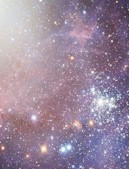
I’ve learned through drawing and painting that art
(at least
in its more recent representational forms) is usually diminished when
we devote too much time to “improving” the areas whose actual contours
we don’t understand very well. All this effort tends to show,
and
the net effect is typically to direct people’s attention to areas that
don’t have much to do with what would actually render the artwork most
compelling or memorable.
I’ve found it’s better to just
fade out the elements that I don’t have as good a grasp of—as well as
those I just don’t find especially interesting. Since the
human
brain can do quite a bit with small but telling bits of information,
the results can be a lot more powerful. For example, in doing
a
portrait, if you start with the eyes and render them with conviction,
you’ve pretty well captured a person’s essence. On the other hand, parts like elbows or toes don’t tell us a whole lot.
I believe that when followers
who outlive the great messengers begin proselytizing unsupervised on
their own, they tend to spend too much time addressing issues their
visionary leader said little or nothing about, and too much effort
converting his messages into more traditional religious institutions,
which purport to provide necessary direction in all areas of
life.
One illustration: I don’t mean to pick on any
one
religion, but certain Islamic rules regarding the role of women have
been found to be based not on the writings of the Prophet Muhammed, but
simply on Bedouin tribal customs.
If educated modern-day
adherents of all the historic faiths could perform more rigorous
scholarly re-evaluations of their traditionally-accepted beliefs,
trimming them down to just the ones that are the most reliably
traceable to the words of the messengers themselves, I think the world
would gain a more compelling and useful distillation of each individual
religion’s most precious essence.
If this were to occur, I
believe we’d also find numerous areas where one religion has relatively
little insight to share, but another has a lot. This could
enable
us to incorporate the best elements of all the world’s major religions
into a blended whole that would be far more valuable than any one of
them by itself.


